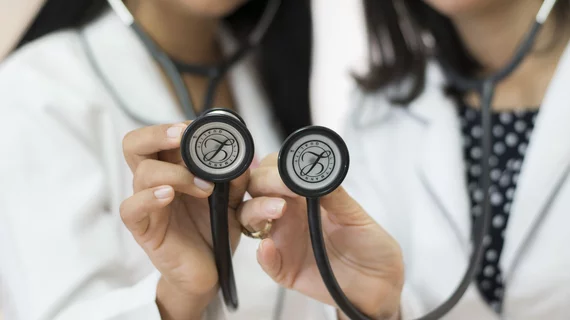Interventional cardiologists earn healthcare’s highest starting salary—other heart docs not far behind
Interventional cardiologists earn an average starting salary of $611,000, the highest of any healthcare specialty, according to a new recruiting report from Merritt Hawkins. Orthopedic surgery ($546,000), gastroenterology ($453,000), non-invasive cardiology ($446,000) and radiology ($401,000) rounded out the top five.
The 2021 Review of Physician and Advanced Practitioner Recruiting Incentives, developed and published by Merritt Hawkins, focuses on data collected from April 1, 2020, to March 31, 2021. In addition to starting salaries, the report also examines which specialties are recruited the most at any given time. Family physicians have been No. 1 on that list for quite some time—14 years, to be exact—but nurse practitioners topped the list this time, moving family physicians down one spot to No. 2.
“COVID-19 and other forces are changing the dynamics of physician and advanced practitioner recruiting,” Tom Florence, president of Merritt Hawkins, said in a statement. “Nurse practitioners are coming into their own in a market that puts a premium on easy access to care and cost containment.”
Cardiologists, meanwhile, came in at No. 11.
Another key finding from the report was that the number of search engagements coming from hospitals is down from 36% in 2020 to 33% in 2021. This, it seems, is likely tied directly to the ongoing pandemic.
“Hospitals lost some $200 billion dollars over the first quarter of 2020 directly or indirectly as a result of the coronavirus pandemic,” according to the report. “Hospital visits as of May 2020 were down by 40% year-over-year. Consequently, ‘cash in hand’ and patient and staff safety were the key priorities of hospitals during the pandemic, ahead of physician recruiting or any other consideration.”
The report’s authors also emphasized that cardiology is likely going to be heavily impacted by a physician shortage in the near future. By 2025, the specialty could be facing a demand of more than 35,000 doctors—but a supply that falls short of 29,000.
The full report is available as a PDF here.

